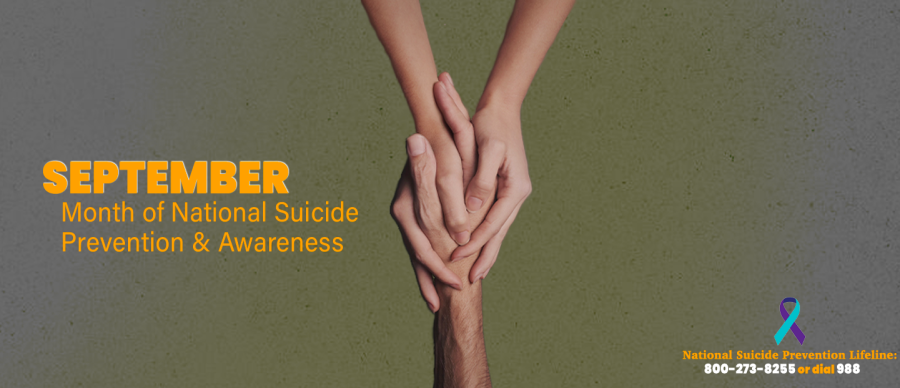September recognizes suicide prevention
September 20, 2022
September is considered nationwide as Suicide Prevention and Awareness Month. Counselors and mental health advocates use this campaign to help educate everyone on how suicide affects the U.S. National Suicide Prevention and Awareness Month was first recognized in 2008.
Suicide steals loved ones from family and friends, and it can be a difficult situation to understand. Suicide is most often the result of untreated mental health.
Mental health has become a taboo topic and is often an undermined and overlooked disease, which is one of the main reasons suicide is as prominent as it is. Individuals struggling often do so in silence, leading to a higher rate of suicides.
According to the University of Michigan’s Counseling and Psychological Services, suicide is the second leading cause of death among college students with approximately 1,100 college students committing suicide each year.
Since the implementation of Suicide Awareness Month, people have felt more comfortable reaching out for their mental health struggles and know where to find the resources they need.
The topic of suicide is a grim one, but it is a conversation that needs to happen to be sure those who need help never feel as though suicide is their only option. ULM psychology professor Amber Boykin spoke on the importance of ending the stigma around suicidal thoughts.
“As a school psychologist, I often had this conversation with administrators that talking about suicide does not ‘give’ people suicidal thoughts, but it can give those who are already having them a feeling of hope and that there are others out there experiencing what they are experiencing, as well as resources available,” Boykin said.
College students, especially after COVID, struggle mentally trying to relearn how to balance school, work, family, relationships and many other things. Results from the 2020 National Survey on Drug Use and Health showed that 1-in-3 young adults between the ages of 18 and 25 experienced a mental, behavioral or emotional health issue in the past year.
Another study conducted by the National College Health Assessment showed that among college students, 29.1% have been diagnosed with anxiety and 23.6% have been diagnosed with depression.
Alden Tristan Sonnier, a member of the Student Government Association on campus, said he has seen the effects that being mentally unhealthy can have on someone.
“I have seen my friends go through some obstacles with their mental health, whether it be from classes, personal life, work etc.,” Sonnier said. “It is one of the most challenging things to see a close friend go through.”
Karen Foster, the director of the ULM counseling center, said this awareness campaign is vitally important, and ULM will be holding a program to help students struggling with suicidal ideation.
“Suicide Prevention Awareness Month is important because it provides an opportunity for the public to be educated on the risk factors and warning signs associated with suicide, as well as the interventions and treatments for individuals who are experiencing suicidal ideation,” Foster said. “The dialogue created by this annual campaign has the power to literally save lives.
The Counseling Center offers free therapy to all students. The counselors there also suggest that anyone who is struggling with their mental health or suicidal thoughts call the National Suicide Hotline at 988 and reach out to someone who can help.
On Sept. 14 at 4 p.m. the Counseling Center will provide an outreach program on suicide prevention in Library 3-C.



